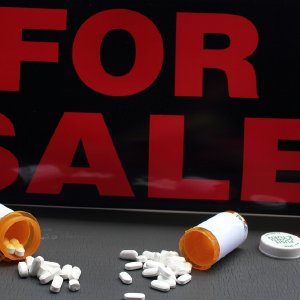How Can Doctors Identify Drug Abuse Better?

Drug and alcohol addiction is a grim topic, one that is not very well understood by most. For the most part, such habits exist as monsters in the closet, dark obsessions that folks would rather not know much about. Ignorance is bliss, as they say. But sometimes, and now especially more than ever, we have to confront these things, as many Americans are now addicted to substances and they need our help.
One of the greatest challenges in facing 21st-century substance abuse is the fact that the majority of the problem lies in pharmaceutical drugs. At this point, more Americans are hooked on legal, supposedly safe and supposedly helpful pharmaceutical drugs than those who are hooked on illegal street drugs. This is a terrible indicator of the direction our society is headed in, and a wakeup call that change has to occur.
The Challenges Faced by Doctors
With the new addiction dilemma being one felt by prescription drug addicts more than anyone else, doctors are faced with some of the greatest challenges of their careers. How can doctors identify drug abuse better? How can doctors tell the difference between the patients in front of them who are substance abusers and the patients in front of them who have a legitimate need for help?
Doctors need to continue to be our opinion leaders in health and medicine, but in that same token, they need to do a far better job at identifying substance abusers who are posing as patients simply to get ahold of pharmaceuticals.

So how can doctors identify drug abuse better? They can start by implementing Prescription Drug Monitoring Programs into their office practices. Prescription drug monitoring programs are state-run data programs offered by almost all states. These databases store information on every patient who has ever filled out a prescription for any drug, ever. This system helps greatly in assisting doctors to have instant access to any location where the patient in front of them may or may not have gotten similar drugs from. Such programs effectively reduce doctor shopping.
However, at this time, prescription drug monitoring programs are available as a voluntary service to doctors. Doctors do not have to use prescription drug monitoring programs. This is the part that needs to change. There is no justifiable reason why doctors would not absolutely capitalize on prescription drug monitoring programs. These programs are currently the only means we have for proving that a prospective “patient” is actually just doctor shopping.
Another strategy that doctors could implement would be to draft a series of questions, a questionnaire of sorts, tailor-made to their practice. Such a questionnaire would be configured to investigate a patient’s true intentions behind seeking help for a pain problem. Some medical schools in Massachusetts, New England, and California are already training medical students in how to screen their future patients well for potential foul play and substance abuse.
Yet another strategy would be to utilize different approaches to pain relief so that highly addictive and potentially lethal prescription opioids are not the only solutions that doctors have to offer their patients. Prescription painkillers have long since been proven to have serious and negative side effects that carry with them a plethora of risk. Why continue to use the same broken system to attempt to fix a problem that just won’t go away? What is the point in that?
Doctors should do their own research, and rather than having pharmaceuticals forced on their practices by pain pill manufacturers, should instead utilize alternative, non-addictive, even holistic forms of pain relief. This approach and the others above are key first steps that doctors can take to reduce the skyrocketing prescription drug epidemic that our country is currently stuck in.
Sources:

